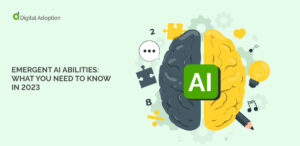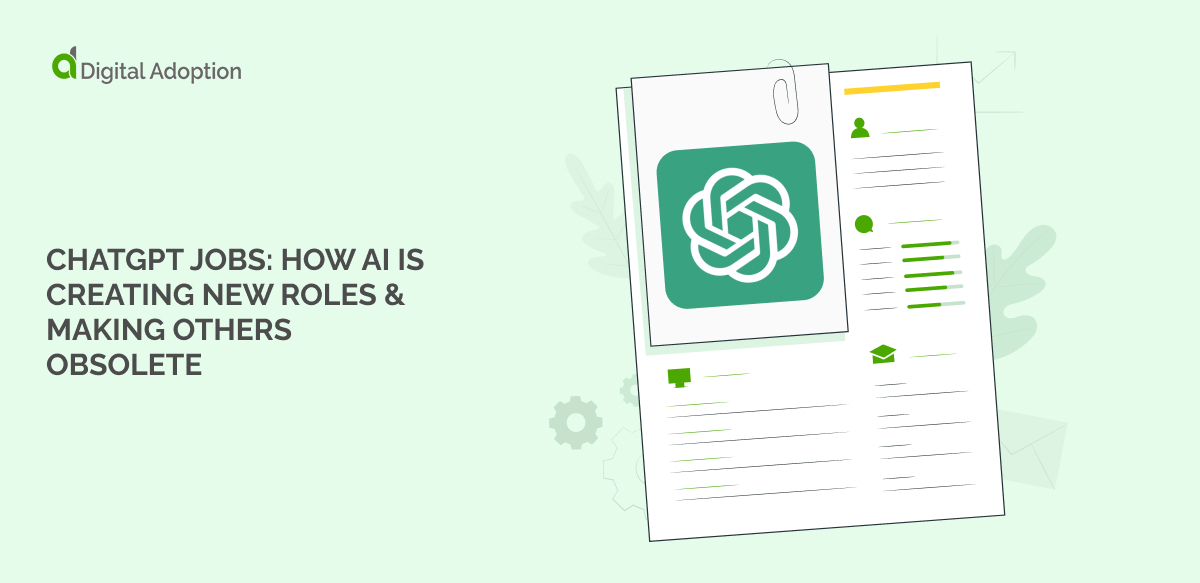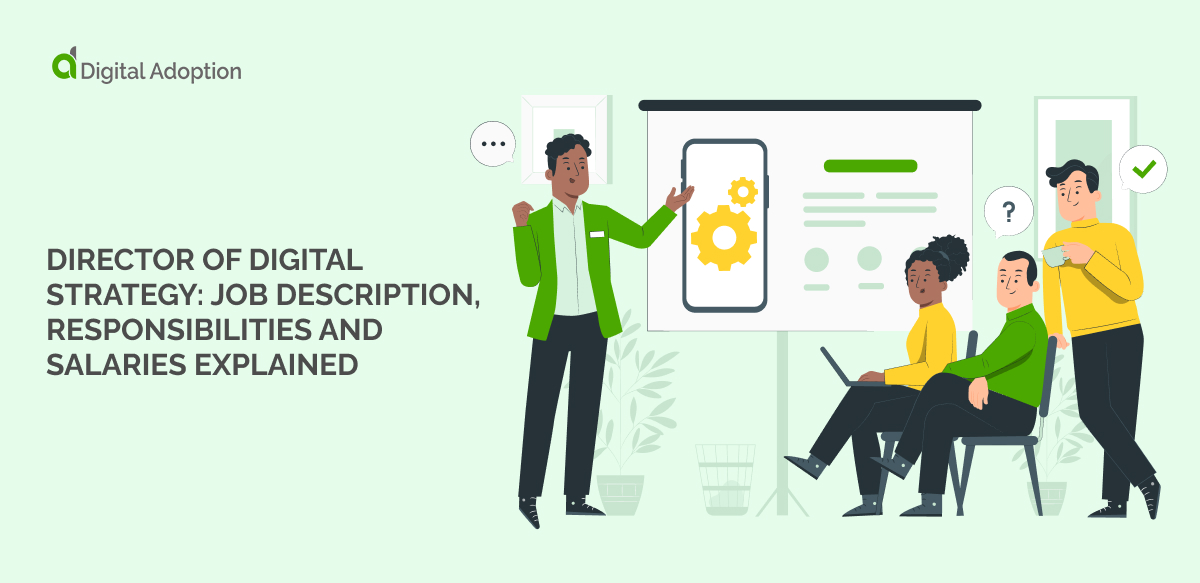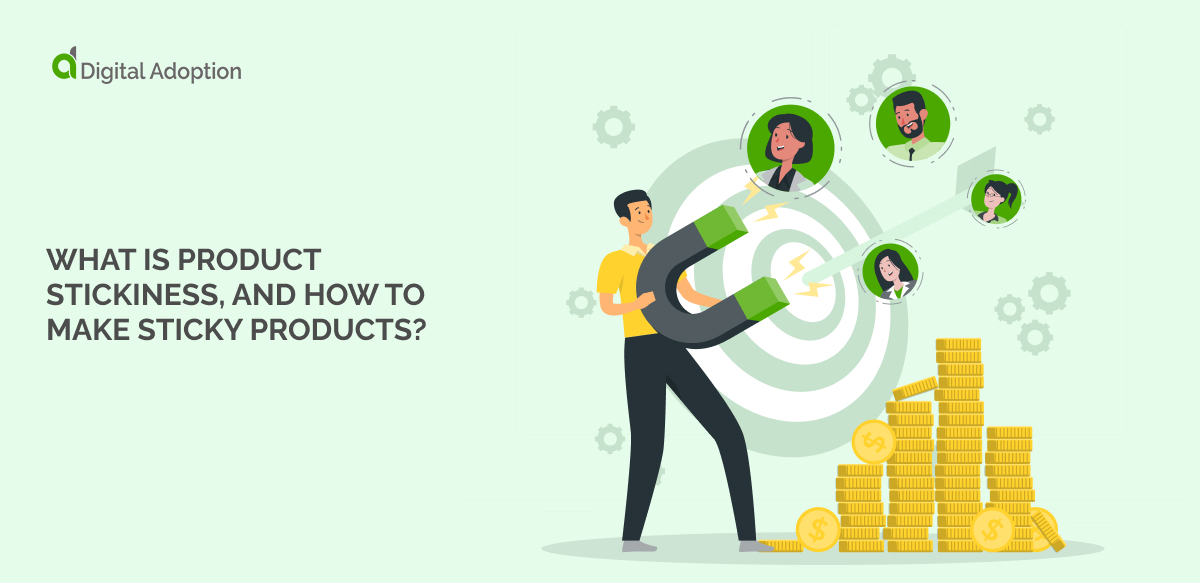3 in 4 companies fail at digital transformation.
Actually, it’s a whopping 84%.
It’s not rocket science, but many organizations are failing to give their digital transformation the attention it deserves. Adoption rates are not what they should be, so it’s imperative that business leaders improve their digital adoption knowledge.
Writing in Forbes, Lilach Bullock says it well:
“Adapting to new technology and fully leveraging its features is imperative to the modern organization and it is what leads to digital transformation.”
The importance of digital professional development for today’s leaders
Today’s corporate landscape moves at an incredible pace. Business leaders must take their continued professional development seriously in order to stay agile, relevant, and competitive.
Those who don’t continue to invest in updating and expanding their skill set will get left behind. Particularly when it comes to digital.
Manish Dudharejia writes in Entrepreneur: “There cannot be digital transformation without leaders who have mastered the ins and outs of digital adoption.”
“In order to become an effective leader in any digital transformation, it is critical that you do everything in your power to stay updated with this ever-changing field.”
We suggest that you start by monitoring influencers in the tech industry, like Isaac Sacolick, CIO of StarCIO.
Follow digital adoption and transformation blogs, like the one from Digital Adoption Platform (DAP) provider, WalkMe. And check out The Edge podcast hosted by Michael Krigsman.
Why digital adoption knowledge should be at the top of your learning list
1. Digital adoption knowledge aids digital transformation
We’ve said it once and we’ll say it again. There can be no digital transformation without successful digital adoption.
Most companies these days have integrated technology into their strategies, with varying degrees of success. Leadership buy-in, a comprehensive strategy, and a user-focused approach to digital adoption are key to improving your chances.
Leaders need to “step up,” warns Manish Dudharejia, and understand “the important role that they play in supporting a tech-centric culture”.
For most traditional enterprises, digital transformation is going to require a major culture change. It’s much more than a simple IT transition and must be treated as such.
2. Digital adoption knowledge leads to deeper customer insights
Data makes the world go round. At least, that’s what it feels like in 2019.
The digital revolution has given us access to more data than most organizations are able to manage. That’s why Data Scientist was labelled the sexiest job of the 21st century, because they’re the ones that can decipher all this data and turn it into meaningful insights.
2018 was the year of customer experience. And in order to improve CX, we need insights derived from data. Digital platforms can provide us not only with the data we need, but with the meaningful insights too.
(Data Scientists may soon be a thing of the past!)
For example, you’ve rolled out a new app for customers. By layering a DAP over the top of the application, you can find out which features your customers are using and exactly what they’re struggling with.
It’s this sort of digital adoption knowledge that can help you to boost the CX no end.
3. Digital adoption knowledge leads to improved productivity
According to a report by Forbes and VMWare, employees that are “digitally empowered” are significantly more productive.
Not only that, they’re happier too.
In a recent global study by Aruba, it was revealed that employees who work in digitally-forward workplaces are more motivated, have higher job satisfaction, and a better overall sense of wellbeing.
4. With digital adoption knowledge comes further innovation
The general consensus when it comes to having digital adoption knowledge, is that it leads to an overall more innovative outlook.
HP is an enterprise that uses the WalkMe DAP. They have reported becoming a more innovative organization overall, as a result of their digital adoption knowledge.
Richard Gines, Manager for Workflow Worldwide Technical Services at HP Indigo, says, “[The DAP] became a tool of innovation.”
“My team has been able to innovate things that we never would have even tried to look at before.
“The outcome is that my organization has developed a reputation for being the innovators.” Richard Gines, HP Indigo
Manish Dudharejia proposes that organizations that focus on digital adoption are practically guaranteed “to remain innovative and creative.”
“A business leader who understands digital adoption — as well as the best strategies and approaches to apply it within the business — will be able to cultivate a culture of innovation.”
In summary
The new year is an opportunity to refresh, refocus, and reignite. If your digital adoption knowledge is poor, now is the time to prioritize it.
Even if you believe your knowledge is good, it will constantly need updating to keep pace with the latest tools and trends.
You and business leaders like you will be making a huge mistake if you don’t.













